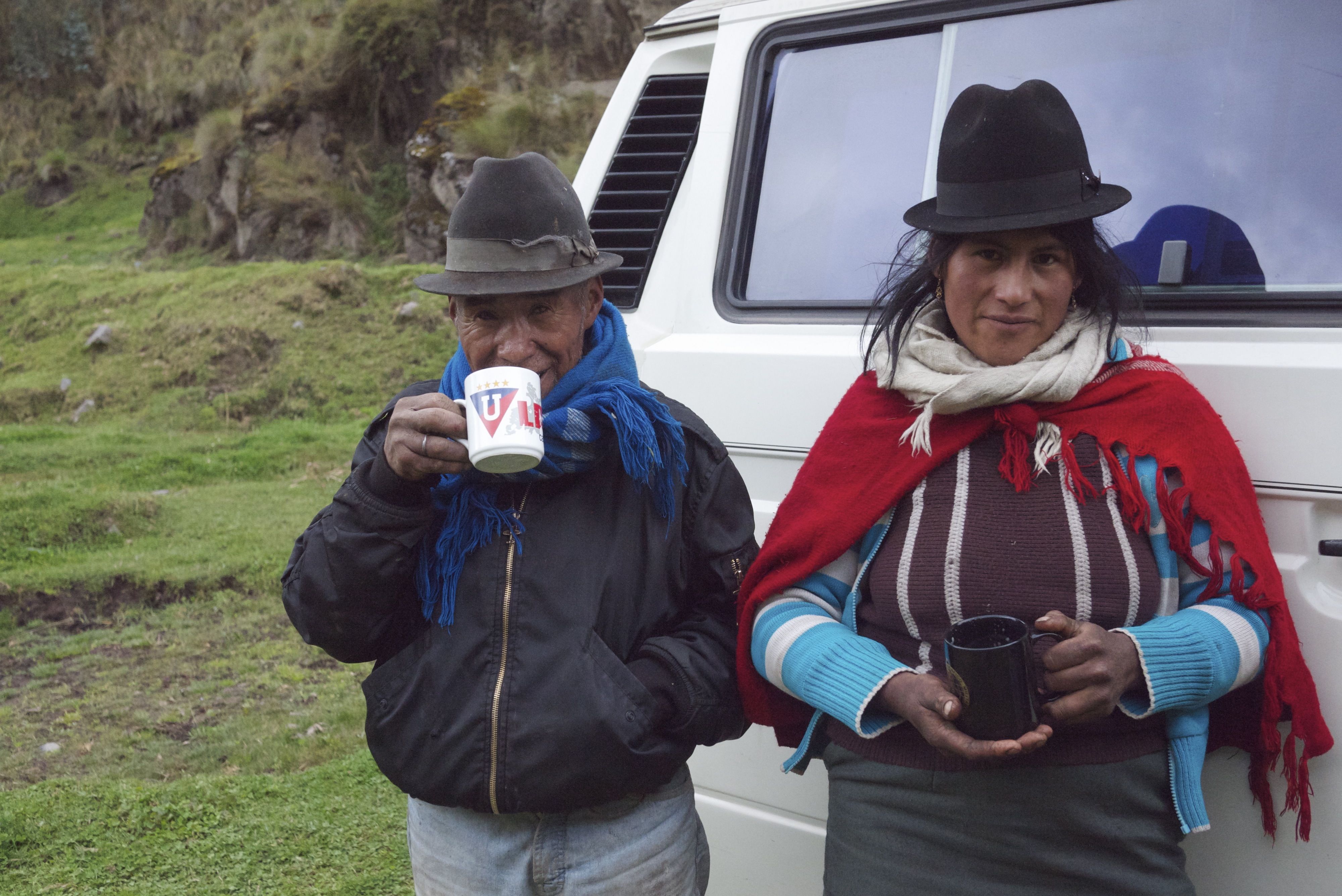A lot of overlanders seem to experience mechanical problems in Quito. I’m guessing this has something to do with the high altitudes (almost 3000m), the steep roads, and the gorgeous Ecuadorean countryside, which makes you want to push the limits of your vehicle. But all told, Quito is not a bad place to find yourself stuck for a few days…or a few weeks–particularly if you are lucky enough to enjoy the hospitality of such a wonderful host family as we have been.
Quito has been really impressive. If you’ve traveled around Latin America much and been to visit the colonial cities and historic downtowns, you would still be struck by Quito’s Casco Viejo, which is larger than most, and so clean as to feel almost unreal. For a city of almost 3 million, it feels surprisingly manageable. There are three rapid bus lines than run north-south through the city, and at 25 cents, a cheap and quick way to get around (the city is planning to build a subway as well). Joining the illustrious ranks of cities like Paris, Mexico City, and most recently San Francisco, it has instituted a bike-sharing program, and newly installed separated bike lanes can be found all across the city. Quito also has beautiful, sprawling parks, and even the tiniest pocket parks are patrolled by at least one security guard.



After a long week of me enjoying the parks and Juan visiting half the auto supply-related stores in the city, we took off on a tour of the area, before circling back to pick up some van parts that we are having shipped from the ever-trusty Van Cafe in Santa Cruz. Our first stop was Cotopaxi National Park, where we hit snow at 4500m, and Milo sunk his paws into the chilly white for–as far as we know–the first time in his life. Juan happily filled the cooler with snow, though it would be a few days before we wanted cold beer.


After a very, very cold night–I weatherproofed the tent with towels–we set off for the next volcano, Chimborazo, which Juan had been telling me about for some time, since it is point “closest” to the sun, due to the Equatorial bulge. We bumbled into a beautiful route through Tungarahua, which wound through a beautiful canyon, surrounded by green pastures and accompanied by the burbling of a lazy river. It was so beautiful that we stopped in the first flat area we found, just next to the river. We checked in with a guy and his cows, who was vague about whether the land was communal grazing lands or private property. In any case, he said, we were welcome to stay for the night.

In the morning, the man and his (wife? daughter? we were too shy to ask) female companion came down to the van to stow their plastic container of fresh milk in the river to cool it down. We had coffee with them, using the new mugs that our hosts Chalo, Sandra, and Pancho had given us as gifts back in Quito.

After taking this photo of them, the woman started asking questions about the camera and Juan realized that I had neglected to show her the photo. We ended up taking more photos of them with the promise to return with prints for them when we pass back through in a few days. I take so many photos that sometimes forget that cameras–and photos–can still be a foreign technology.

Then, we continued along the canyon road to the highest point in the world.

The van managed to climb to 4800m, faring better than I did. I got a bit nauseated from the altitude and only a gigantic, puffed-out bag of Ruffles made me feel human again. We continued onto the town of Baños, so named for its thermal waters. It was a Sunday night, though, and pretty hectic–not the serene evening of soaking we were looking for, and most baths were closing up around 5pm anyway, so we spent the night in a hotel and then drove the next day up through the lowlands bordering the start of the Amazon basin. Just before sunset, Juan spotted a private road leading down to the Río Papallacta, and asked permission from the owner to camp for the night. It was a perfect night–not too cold, and the glorious rushing water just beside us.

In the morning, we went to the thermal waters in Papallacta, which were absolutely glorious. We even took on the challenge of plunging into the cold pool. I thought I was going to go into cardiac arrest–especially at that altitude! But I’m still here to tell the tale.

More photos at limpire.

Amazing photos , Ecuador sounds amazing
“The hilly terrain makes for great city views. In the background, the state of the virgin that guards the city.”
U fergit sump’m…?
Thanks for the great postings… Have loved following y’all’s travels…!